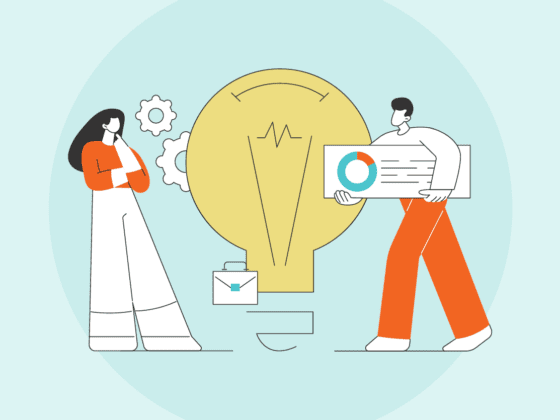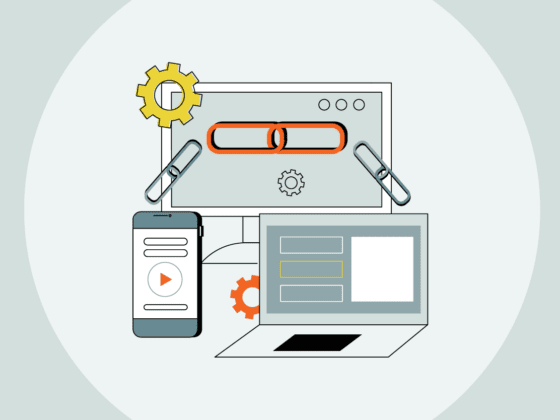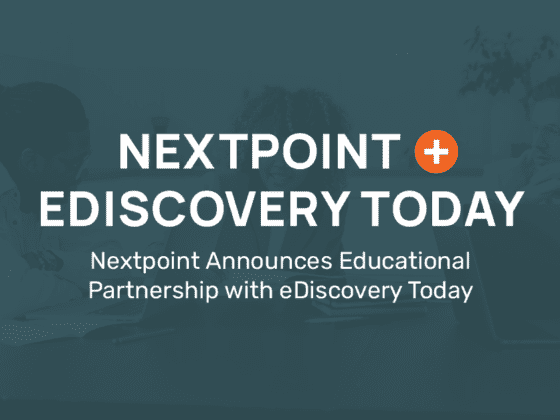
CONVERSATIONS WITH: Alitia Faccone + Rakesh Madhava
Nextpoint’s “Conversations With” is a feature offering insights from two or more industry insiders in a “panel-style” discussion around a specific topic area. Expect a lively and thought-provoking reportée and check back regularly for installments. To read the whole series, here is Part 2, Part 3, Part 4, Part 5, andPart 6.
Installment #4 by Alitia Faccone
Hold your smartphone Rocky—or as my Italian grandmother used to say, “Aspetta un minuto!” (although I think the Sicilian version was a little, uh, less formal). Either way, just wait a minute; you are likely to start a revolution (and one that has nothing to do with technology) if you use the words “lawyer” and “failure” in the same sentence.
Before I come back around and agree with certain of the points you raise, I must first disagree and defend my species. We are not, all of us, “opposed to change.” In fact, we are the champions of change. As we advocate our clients’ positions, we often necessarily promote the need for change in the law every day from the most basic relevancy issues in motions to compel discovery, to the most significant First Amendment issues in appellate briefs to be argued before the Supreme Court. (See e.g., Brown v. Board of Education; Mapp v. Ohio, Roe v. Wade, New York Times v. United States.) Indeed, we are an integral part of the process necessary to move the law forward and effectuate positive societal change.
But yes, not all of us have rushed to hitch a ride on the nearest cloud, and sat idly while our terabytes multiply. I will admit there was a time, years before I turned onto the “information superhighway” and saw the light emitting from my computer screen, when I was repeatedly chastised for my arrested development and lack of digital savvy. It was so bad that my then-technologically superior colleagues would excuse my behavior by saying, “oh Alitia, she’s not good with ‘the machine.'”
Times Change, and So Do Lawyers
Now I realize we are living in a digital world and I am a digital girl. However, there are still members of the old guard—although their numbers are definitely, thankfully diminishing—who still eschew the computer altogether. One of my most revered legal mentors (we’ll call him Al) is a brilliant trial attorney and the man who taught me everything I know about taking a deposition—explained to me that I still had to email his secretary to reach him. “Well, I did let them talk me into hooking up one of those things in my office,” he said. “But I could never figure out how to use it so I told them to take it away and not bring it back.”
But the “Als” of the world are in a rapidly decreasing minority. Far from the “end of lawyers,” many among my ranks are utilizing technology and driving the need for technology advancements both inside the courtroom and out. I understand, as one of the new breed of “legal/IT lawyers” that the use of technology to do the job every day (i.e., reading your email on your iPad) and using technology to deliver the most strategically sound conclusion to a matter can be two entirely different things. The key in any litigation is the evidence to support your case. The fact that most evidence has changed its form from paper to electronic data has not changed the fact that a lawyer needs to identify and utilize the right evidence to succeed. Good, savvy, effective litigators will always be economically viable because they understand their clients’ needs, and because clients need effective litigators. Even moving the courtroom to the cloud will not change that fact.
The Evidence Has Changed. Litigators Have Not.
What has changed, as we are all are aware, is the amount of potential evidence that must be examined since data proliferation has spawned more evidentiary possibilities. Embracing the technology, that will enable your client to get to the litigation goal line faster and at less cost, will separate the good litigators who understand and utilize technology from those who don’t. But the smart use of technology does not only apply to lawyers. Those they represent must also remain ready, willing and able to be smart about how they create, manage and store data. The question should not always be “how much storage can I get in the cloud,” but “how much storage do I really need?” or ” how much data should I/do I really need to keep?”
Would it be too much of an overstatement to say that most everything runs smoother when people work together? I think not. And that includes lawyers and their clients, their adversaries, and the judicial system. Am I advocating the end of advocacy? Not for a digital nanosecond. Rather, I mean we must all come together using technology with the rules already in place to advocate the smart, strategically sound strategies- without pointing fingers at those among us who might not have read Judge Peck’s opinion in Da Silva Moore.
There are times when more is better in litigation, but those times—like people that believe in Santa Claus, are far and few between. Unloading boxes of electronic media in a judge’s lap just wouldn’t have the same effect of Fred Gayley’s unloading countless postal bags of actual letters addressed to Santa Claus. Sometimes blind faith, or simply trying something unfamiliar that works, is just as good as a shiny red nose in a blizzard.
The the fourth in a series of posts about changing the eDiscovery dynamic
Alitia Faccone, is co-chair of McCarter & English’s eDiscovery committee, and is well versed in all facets of electronic document discovery, including the viability, use and defensibility of advanced technology solutions. Rakesh Madhava, Nextpoint CEO opened this discussion. You can find the next installments here: Part 5 and Part 6.






